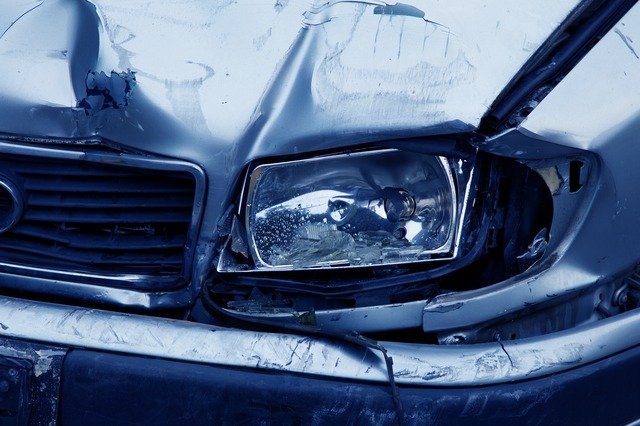Automotive
What to Do After You’ve Been in a Car Accident
A few useful tips and pointers for anyone finding themselves in this unfortunate situation.

When you’re involved in a car accident, you will have to be able to think fast even though you might feel confused or unnerved. There are plenty of things you will have to do while you’re at the scene and immediately following the accident. Taking the time to learn the proper steps to take will help you protect yourself legally and financially. This guide can help you deal with the aftermath of a serious car accident.
Assess the Scene
Immediately after an auto accident, your first task is to assess the medical condition of everyone at the scene. You should start with yourself to determine if you’re able to move. If you have suffered severe injuries that prevent you from moving, you should do what you can from a relaxed position to prevent your injuries from causing you more pain or discomfort. Otherwise, you should inquire about the condition of anyone else involved in the accident, including the passengers in each vehicle. You should also try to identify the nearest major cross street. This information will be useful to the dispatcher when you call for help. The information you provide will help the dispatcher determine what type of help to send and where to send the emergency response vehicles.
Collect Evidence
It may take a while for the police and other emergency response personnel to arrive at the scene of the accident. While you’re waiting, you should collect the names and contact information of the other driver, passengers, and any witnesses to the accident. You should also exchange insurance information with the other driver. Be sure to avoid discussing the accident, and do not admit fault to anyone. You can also use the camera on your cell phone to take pictures of the damages done to each vehicle. If guard rails, trees, or other physical property was damaged, take pictures of that damage as well. It can be helpful to get a clear picture of the license plate on the other vehicle involved in the accident. You may need their plate number in filing an insurance claim.
Obtain a Police Report
The police won’t always take statements from the drivers involved in the accident, but you should insist on making an official statement. This provides you with an opportunity to get your version of the accident into the official report. If you don’t make a statement and the other driver does submit one, their version of events will be the only story on the official record. Additionally, be sure the investigating officer knows that you want a copy of the report. It will help you in filing your claim, and it may help an attorney build a stronger case on your behalf.
Undergo a Medical Evaluation
Some people delay undergoing a medical evaluation after getting into a traffic accident, but putting off this step in the process can harm you. First, delaying a medical evaluation and treatment can make it seem as though your injuries aren’t as serious as you claim. Additionally, there are serious injuries, such as brain trauma or spinal damage, that may not produce significant symptoms right away. If you don’t get a diagnosis early enough, you may not be able to fully recover.
Consult an Attorney
As soon after the accident as possible, you should consult a lawyer familiar with these types of cases, such as an L&I lawyer. The initial consultation will be free, and it will provide you with a professional assessment of your case. If you do decide to hire the attorney, they will work for a contingency or percentage of your settlement. Your lawyer can negotiate for a fair settlement on your behalf and help you through the claim process. If the insurance company decides not to settle, your lawyer will be prepared to take your claim to court. Since there is a limited amount of time to file a lawsuit after an accident, having a lawyer already working for you will save time. Typically, the statute of limitations on an injury claim is two years from the date of the accident.
While you may already be familiar with some of these steps, it’s important to follow them all. If you make a mistake in responding to your accident, you may not be able to claim damages to help with your recovery. For the best possible outcome, take your lawyer’s advice and document as many details about the accident as possible.
-

 Business6 days ago
Business6 days agoS&P 500 Soars in Best May in Decades Amid Tariff Relief and Nvidia’s Surge
-

 Immigration7 days ago
Immigration7 days agoTrump’s Immigration Crackdown: Legal Battles and Policy Shifts
-

 Business6 days ago
Business6 days agoUS Stock Market Soars in May Amidst Tariff Tensions and Inflation Worries
-

 Government7 days ago
Government7 days agoTrump Administration’s Government Reshaping Efforts Face Criticism and Legal Battles
-

 Business7 days ago
Business7 days agoTrump’s Tariffs: A Global Economic Reckoning
-

 Foreign Policy4 days ago
Foreign Policy4 days agoInside Schedule F: Will Trump’s Federal Workforce Shake-Up Undermine Democracy?
-

 Press Release4 days ago
Press Release4 days agoIn2space Launches Campaign to Make Space Travel Accessible for All











